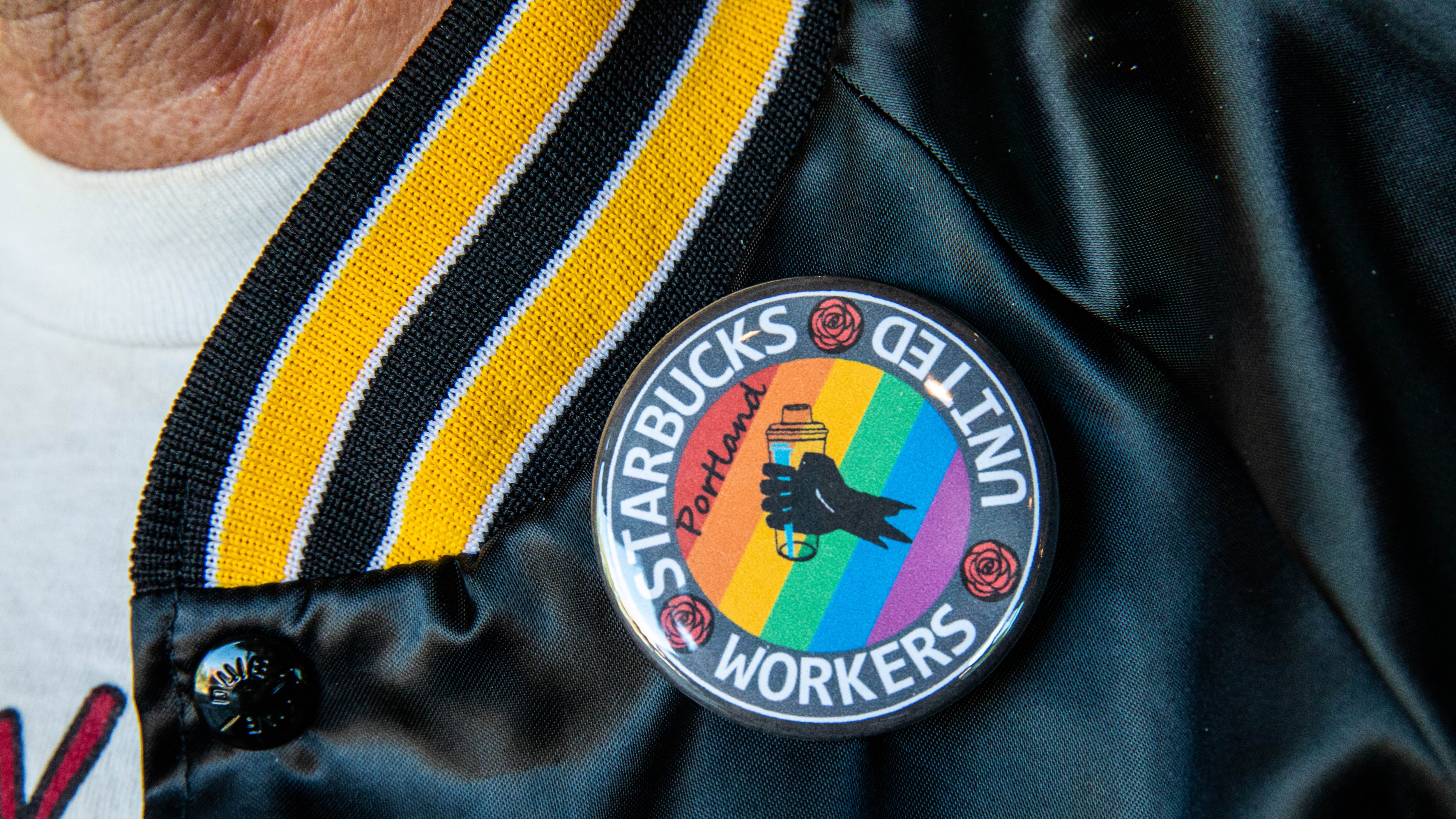In the cold spring rain Monday morning, the green aprons were gone.
Starbucks baristas at three local shops—Pioneer Courthouse Square, Southeast 28th Avenue and Powell Boulevard, and the Northeast Stucki Avenue location in Hillsboro—walked off the job and onto picket lines, citing unfair labor practices tied to company dress code enforcement and stalled union contract negotiations.
“The legal precedent for our strike is unfair labor practices around the dress code policy,” said Jake Compton, a 28-year-old barista and labor organizer at the Powell location. “It was applied unilaterally to union stores while we are in bargaining.”
Starbucks’ own dress code outlines restrictions on facial piercings, theatrical makeup, and tattoos it deems “obscene” or “objectionable.” Workers say those rules are vague and inconsistently enforced, and disproportionately target queer and expressive employees.
“There’s really no clarification,” said shift supervisor Brian Mendez at the Powell location. “It feels like a ploy to be able to punish people.”
According to Starbucks’ internal policy, employees may wear only one facial piercing no larger than a dime and must conceal tattoos that fall under broadly defined categories like “profane” or “sexual in nature.” The dress code also bans “theatrical makeup” and “artificial theatrical eyelashes,” but doesn’t define what “theatrical” means.
“Maybe one manager thinks blue eye shadow is okay, but another doesn’t,” said shift supervisor Alyx Rush. “Without having defined lines, you can get sent home.”
Workers said the company has also enforced an informal ban on face masks in stores, arguing that employees were using them to hide piercings. Mendez said those policies have caused tension, especially among staff who are immunocompromised or concerned about their health.
“That was one of the main issues workers had,” he said. “They’re trying to police what we want to do healthwise.”
Reached for comment, Starbucks spokesman Phil Gee said the company believes the focus on dress code is misplaced.
“Thousands of Starbucks partners came to work this week ready to serve their customers and communities,” Gee said. “The biggest update to our dress code is simple: wear a black shirt—either your own or one we provide.”
The walkouts in Oregon were part of a coordinated day of action across the country. Starbucks Workers United shared images and updates from strikes in cities nationwide, including on their official social media accounts.
Jacinda Padilla, a field organizer for Workers United, said the union’s efforts have seen steady progress in Portland, adding that roughly 20% of Portland stores have now unionized.
Gee said less than 1% of Starbucks stores have experienced disruption during the strike activity.
“Workers United represents less than 5% of our workforce, and by their own measure less than 1% of stores have participated in their attempts to cause disruption,” Gee said. “While the union is focused on a simplified dress code, we’re focused on providing the best job in retail with a wage and benefits package that averages more than $30 per hour for hourly partners.”
Despite the weather, baristas and shift leads stood under tents and at tables set up with help from the Democratic Socialists of America. Compton said the walkout would last only one day.
“This could last all week. The attitude is there, if we had the pay,” Compton said. “But we don’t get strike pay. We’re taking the loss by being here today.”
The Powell location, which workers say makes $6,000 to $7,000 in sales per day, voted to unionize in 2022. Since then, employees said, they’ve faced roadblocks at every stage of bargaining.
Staff at the Powell location is represented by Workers United, a union affiliated with SEIU 503. Workers are demanding a $30 hourly wage, a cost-of-living adjustment, guaranteed minimum hours, short-staffing compensation, and health care that isn’t tied to minimum hours worked.
Employees said they had already negotiated much of this—including elements of the dress code—but the discussions hit an impasse.
“They turned conversations about pay into conversations about being dressed appropriately,” Rush said.
Gee said that Starbucks respects partners’ right to engage in “lawful protest activity” but that union leaders are focused on the wrong thing and that their efforts are “struggling to gain traction.”
“It would be more productive,” Gee added, “if the union would put the same effort into coming back to the table to finalize a reasonable contract.”
Inside the Powell store Monday, espresso machines sat quiet. Outside, workers huddled under canopies with picket signs and cardboard carafes, damp from the rain but unmoved.
“I think it’s just a bottom line of a desire for consistency,” barista Gavin Hinden said. “The company keeps changing directions constantly and says they want to be inclusive. But that’s not what we’re seeing.”

